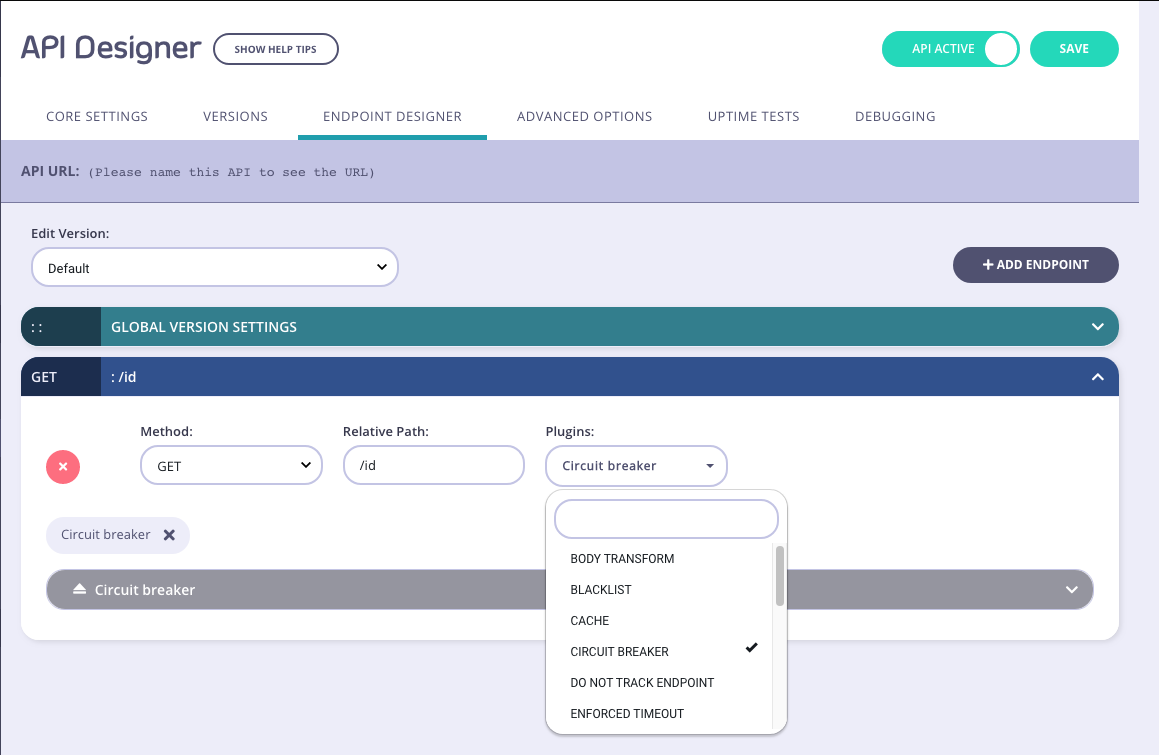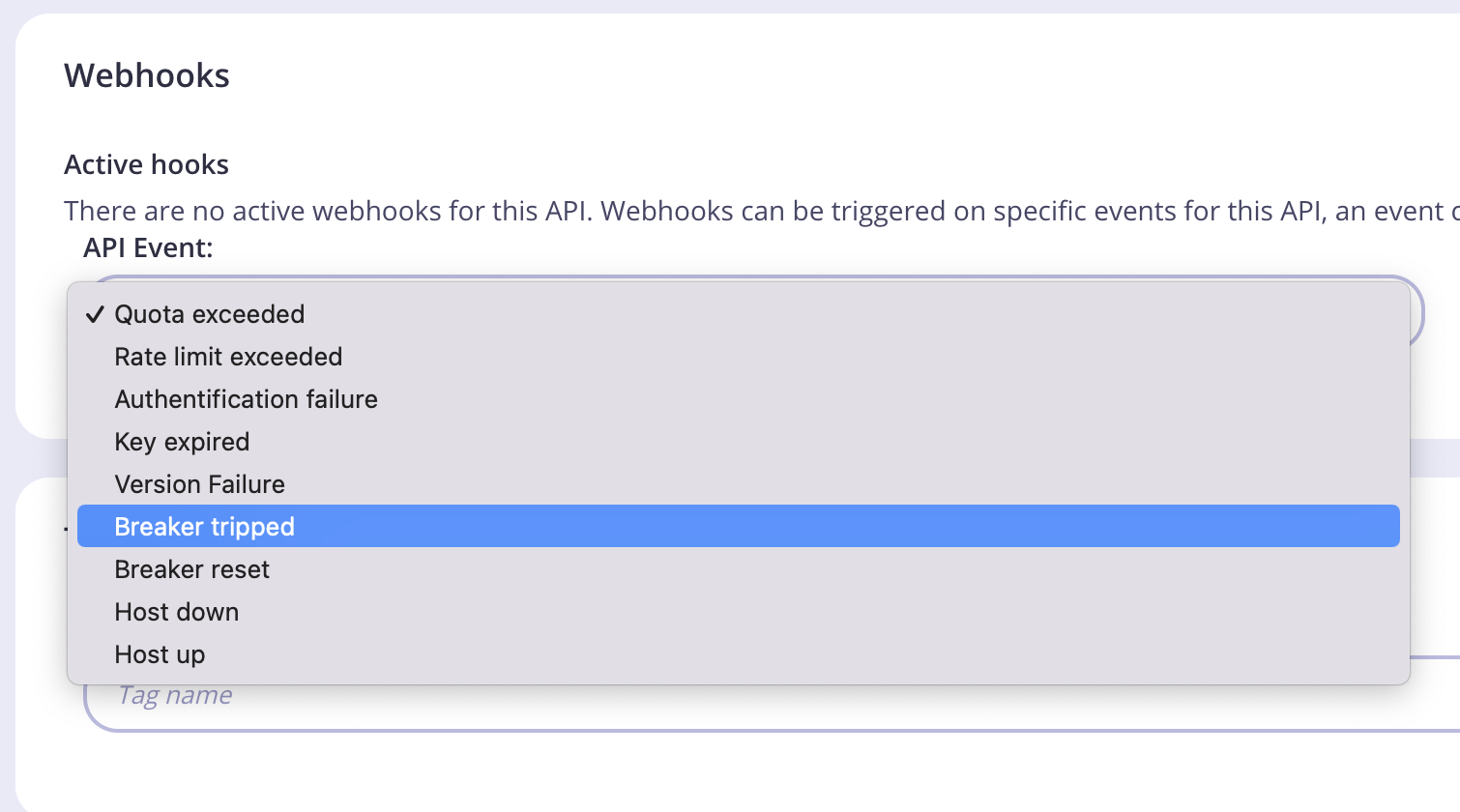Using the Circuit Breaker middleware with Tyk Classic APIs
Last updated: 3 minutes read.
Tyk’s circuit breaker middleware is configured at the endpoint level, where it monitors the rate of failure responses (HTTP 500 or higher) received from the upstream service. If that failure rate exceeds the configured threshold, the circuit breaker will trip and Tyk will block further requests to that endpoint (returning HTTP 503 Service temporarily unavailable) until the end of a recovery (cooldown) time period.
When working with Tyk Classic APIs the circuit breaker is configured in the Tyk Classic API Definition. You can do this via the Tyk Dashboard API or in the API Designer.
If you’re using the newer Tyk OAS APIs, then check out the Tyk OAS page.
Configuring the Circuit Breaker in the Tyk Classic API Definition
To configure the circuit breaker you must add a new circuit_breakers object to the extended_paths section of your API definition, with the following configuration:
path: the endpoint pathmethod: the endpoint HTTP methodthreshold_percent: the proportion of requests that can error before the breaker is tripped, this must be a value between 0.0 and 1.0samples: the minimum number of requests that must be received during the rolling sampling window before the circuit breaker can tripreturn_to_service_after: the period for which the breaker will remain open after being tripped before returning to service (seconds)disable_half_open_state: by default the Tyk circuit breaker will operate in half-open mode when working with Tyk Classic APIs, set this totrueif you want Tyk to wait the full cooldown period before closing the circuit
For example:
|
|
In this example the circuit breaker has been configured to monitor HTTP GET requests to the /status/200 endpoint. It will configure a sampling window (samples) of 10 requests and calculate the ratio of failed requests (those returning HTTP 500 or above) within that window. If the ratio of failed requests exceeds 50% (threshold_percent = 0.5) then the breaker will be tripped. After it has tripped, the circuit breaker will remain open for 60 seconds (return_to_service_after). The circuit breaker will operate in half-open mode (disable_half_open_state = false) so when open, Tyk will periodically poll the upstream service to test if it has become available again.
When the breaker has tripped, it will return HTTP 503 Service temporarily unavailable in response to any calls to GET /status/200.
Configuring the Circuit Breaker in the API Designer
You can use the API Designer in the Tyk Dashboard to configure the circuit breaker middleware for your Tyk Classic API by following these steps.
Step 1: Add an endpoint for the path and select the Circuit Breaker plugin
From the Endpoint Designer add an endpoint that matches the path for which you want to deploy the circuit breaker. Select the Circuit Breaker plugin.

Step 2: Configure the circuit breaker
You can set up the various configurations options for the breaker in the drawer by clicking on it:

- Trigger threshold percentage: The percentage of requests that can error before the breaker is tripped, this must be a value between 0.0 and 1.0
- Sample size (requests): The number of samples to take for a circuit breaker window
- Return to service in (s): The cool-down period of the breaker to return to service (seconds)
Step 3: Save the API
Use the save or create buttons to save the changes and activate the middleware.
Step 4: Optionally configure webhooks to respond to the circuit breaker events
The Dashboard supports the separate BreakerTripped and BreakerReset events, but not the combined BreakerTriggered event type. You should use API Designer > Advanced Options to add a Webhook plugin to your endpoint for each event.
